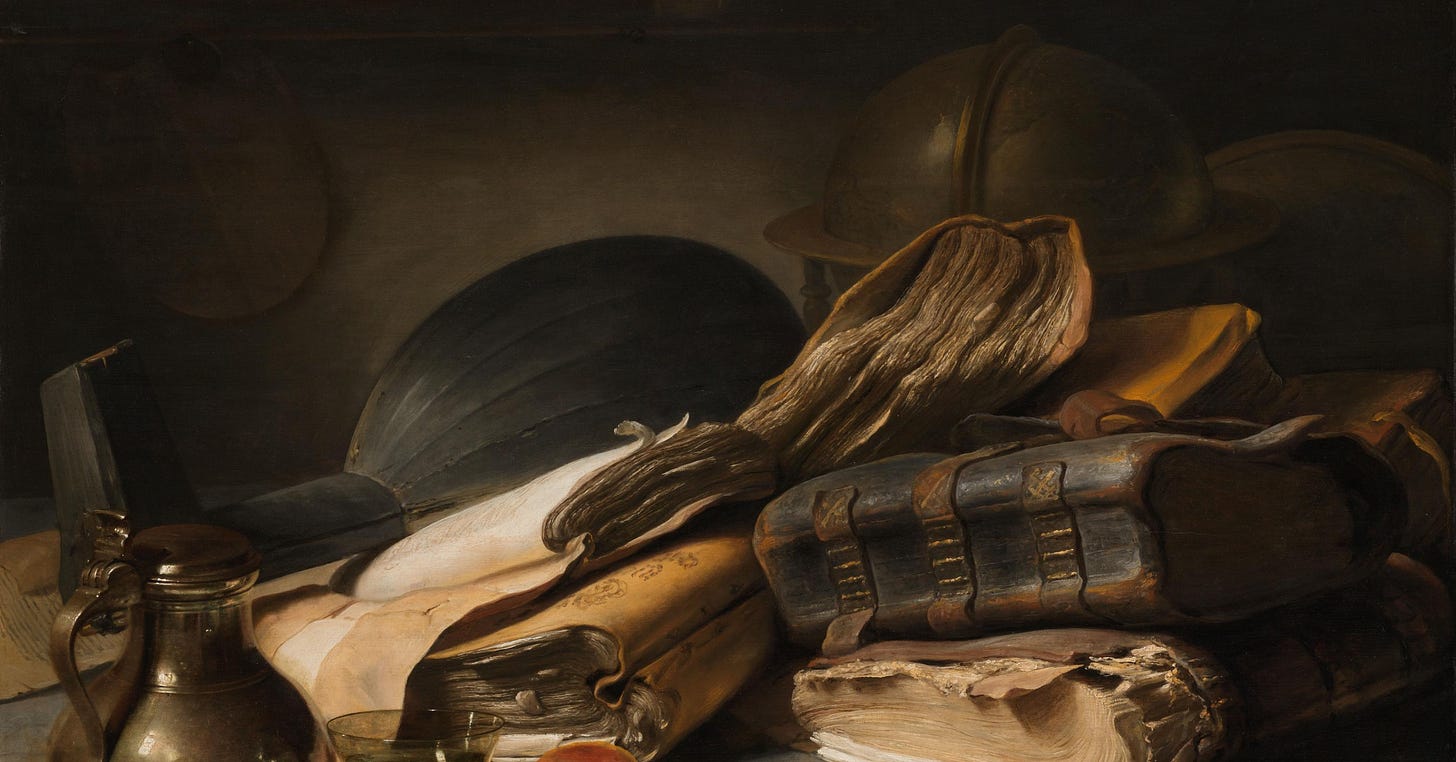Let me take a bit of a detour here.
I came across this quote in the manga Detective Conan when I was a kid. I didn’t understand it fully at the time, but somehow, the quote got stuck in my head until I grew up and can fully grasp the idea behind it.
It’s not really about women or desire. It’s about mystery - the quiet magnetism of someone who doesn’t need to say everything at once.
Most advice about being interesting says the opposite: learn something new, then go talk about it. While that might make you sociable, it doesn’t guarantee you’ll be interesting, because interesting people don’t just talk. They choose what to reveal, not to manipulate or mystify, but because there’s so much within them, they can afford to let it unfold slowly.
You can’t choose to be mysterious just by withholding facts about yourself. Mystery is a byproduct of depth, and depth is built slowly through what you feed your mind and notice in the world. It’s not about saying something impressive, it’s about becoming someone worth listening to, even in silence.
But how?
My first suggestion: sit with something long enough.
One of my long-time hobbies is reading. Whenever someone asks me “where do I start with books?”, my instinct is to flood them with a long list of my own favorites, hoping that they only access the “best” ones. But I’ve realized that for a beginner, a never-ending list can feel more like a burden than an invitation. It’s overwhelming enough to make someone not start at all.
What most people need isn’t more suggestions. They need fewer, and the time to go deeper in each of them. Five good books are more than enough, as long as you read slowly and take in as much as possible: what you’ve learnt from it, did it speak of something meaningful to you, do you hate it - if yes, why?
It’s the same with music. If you want to get into classical music or any other genre, you don’t need a curated playlist of 200 songs. Start with five pieces. Listen until they become familiar. Listen until you notice the moment a theme returns, the way silence is used, the arc of feeling across time. Great art is built to last. It rewards repetition.
This way of savoring applies to everything you consume: essays, articles, even learning a new skill. You don’t have to chase what's new. If an essay resonates, reread it. Try to understand why you like it. If you’re watching videos for inspiration to create your own, don’t just scan for surface aesthetics, look for the intention behind them.
When you stay with something long enough, you begin to see its inner structure, you start noticing what others overlook, and you have your unique point of view about it. That’s when curiosity begins to bloom, not because you’re trying to be interesting, but because the books/music/pieces of art have touched you, and you want to learn as much as possible about it.
I wrote an essay a while ago about rereading book. I firmly believe that great art should be cherished more than once.
Some of the most quietly interesting people I know have one thing in common: they spend time in places where nothing is asked of them. Not fancy cafes where you feel the need to dress a certain way or Instagram-worthy getaways. Just simple, unassuming places, like a park you’ve never visited, a station or a random indie bookstore that is not aesthetic by normal standard.
When you’re somewhere unfamiliar and invisible, the pressure to “be someone” dissolves. You stop worrying about how you look, what you say, or how you come across. You become an observer again, like a beginner in your own life. Your mind slows down, curious again, noticing little details you usually overlook - the way sunlight filters through leaves, the echo of footsteps on tile, the rhythm of a distant conversation.
These subtle shifts do more than just calm your mind, they expand it. They help you see the world and yourself with fresh eyes. And here’s why that matters: being interesting isn’t about having the best stories or the loudest opinions. It’s about having a rich inner world shaped by what you notice and wonder about.
When your attention stretches beyond the usual, you start seeing patterns, questions, and connections that others miss. Your perspective deepens. And with that depth comes a quiet magnetism, because interestingness isn’t a performance, it’s the result of a mind that’s been gently reshaped by new experiences and curiosity.
Next time you feel dull or disconnected, try spending time in a place where you don’t have to perform. Don’t rush to capture it or explain it, just be quiet and let your mind wander. The richness you build inside will show up in the way you see, and in the way others see you.
This might seem a bit off-topic, but I recently came across an excellent piece on observations from people-watching. What struck me was how much attention it takes to discover interesting details in something as everyday as watching people talk. If you’re curious about sharpening your attention and finding the unusual in the ordinary, give it a read.
The problem with advice on becoming interesting is that they suggest you to learn or do something just for the sake of having stuff to talk about. But from what I have observed, interesting people aren’t collecting topics for conversation, they’re simply obsessed with something, whether or not anyone is watching.
Private obsessions shape you even when they’re invisible. They sharpen your attention and change how you think. In a world that rewards constant broadcasting, doing something with no intention of showing it off can feel quietly radical.
Ask yourself: what would you do if you’d have no chance to show it to the world?
Maybe you’re making a faux syllabus on scent theory. Maybe you keep a notebook of oddly specific architectural details. Or maybe you have a private sketchbook that you’ll never share on social media. It doesn’t have to be serious, it’s a small project you do for the pleasure of doing.
Creating or learning in private frees you from performance. You don’t have to package your interests. You don’t have to make them useful or clever. You don’t monetize it. You just follow the thread because it tugs at something inside you.
That said, I think what makes people magnetic is that they are genuinely absorbed, they don’t wait for an audience to validate their attention because they’re already full of it. So go ahead, do something - do it badly, do it beautifully, do it silently. Do whatever, as long as it pokes at your interest and satisfies you whenever you get down to it. And then, when you’re at the right crowd, or the right conversation with the right people, this project is the thing that radiates a vibe of interesting-ness in you, whether you talk about it directly or not.
In short, what makes you interesting isn’t what you show; it’s what you’re willing to love without applause.
On a side note, I think one reason doomscrolling feels so addictive is because many people don’t have a personal project to quietly pour themselves into. There’s that in-between time - after work, a little tired, not quite ready to sleep, not quite alert enough for something serious. And without something of your own to return to, it’s easy to default to an hour of reels. The paradox is that it rarely leaves you feeling rested. Just dull, or still tired all the same.
I wrote more about this in an older piece on the idea of “active rest.” If that feeling resonates, you might enjoy revisiting it.
I read this wonderful piece by Elle where she discussed the quiet magic of boredom, tracing how our relationship to stillness has shifted in the digital age.
Elle argued that boredom is not just tolerable but vital for creativity, for agency, and for maintaining a thinking self. I couldn’t agree more with her. Many of my interesting thoughts arise when I’m sitting doing nothing. How can an original thought appear when I’m doomscrolling and watching endless cat videos?
That said, I get why boredom can be scary. It forces you to be alone with your thoughts, and not all of them are easy to sit with. But if you don’t confront them, how can you shape them? How can you form a clear, articulated opinion about anything? In that sense, boredom is a kind of inward-facing attention - it makes space for your mind to speak clearly, uninterrupted. And that mental spaciousness is often what leads to the kind of obsession that shapes who you are - something magnetic, without needing to be performed.
Boredom doesn’t mean you have to go to a park and sit alone without any form of entertainment for hours, it can just be switching off background noise - even music. I often have YouTube videos playing while I shower, cook, or clean. One day I did everything in silence, and I was struck by how many thoughts surfaced. My mind felt calmer, less cluttered, like there was finally space for what truly matters to rise to the top.
Again, you shouldn’t seek out boredom with the goal of producing something brilliant. That defeats the point. The real purpose is to let your mind rest and wander, or even go completely blank. If you're lucky, the right thoughts will come. But even if they don’t, you’ve still given your brain the quiet it craves.
Curiosity grows in uncertainty, but most of us rush to the answer. Sometimes you just want to know, and the answer is just one search away - why wouldn’t you want to google it or just ask chatgpt?
But here’s the thing: the second you have the answer, the question dies. You trade the aliveness of curiosity for the flatness of a fact. Being interesting isn’t about how fast you can recall information, but about the texture of your thoughts, the way you connect ideas, the questions you carry with you. That only happens when you let something linger.
Next time you wonder about something - a word, a face, a feeling, an unrecognized song - don’t look it up right away. Let it sit in your mind like a riddle. Think about it when you walk, cook, or do your cardio. Let it itch you a little, you’ll be surprised by what else rises to the surface.
I call it the wonder of wonder.
Interesting people aren’t just a store of information - they’re imaginative. Imagination needs space: uncertainty is its home. So yes, you can look up the answer eventually, but wait a beat! let your mind stretch first.
Believe me, you’re already interesting by nature. If you ever feel otherwise, that is because you’ve become too distracted, too externally oriented, or too tired to notice the interesting things already alive within you.
This piece is a small attempt to help you reorient your attention, help you redirect your gaze inward - for it takes care and intention to uncover the interesting part of yourself again, to gently coax it out of hiding and let it breathe.
What makes someone interesting isn’t a list of books they’ve read or a perfect opinion on every cultural debate, but the quality of their attention, their ability to connect unlikely things, their willingness to wonder out loud. You don’t need to master everything, you just need to care deeply about something, and to let that caring shape how you see the world.
Being interesting isn’t something you perform. It’s something you become by noticing more, slowing down, following your little thoughts, and letting them grow into something with shape. And most importantly, it’s something you protect. You protect your inner world by giving it privacy, by not outsourcing every idea, and by letting your thoughts come to a boil before rushing to share.
So please, take what’s useful from this piece and leave the rest. Don’t turn it into a productivity plan or a new self-optimization strategy. Let it be soft. Let it be small. Maybe it’s just one shift - some minutes of silence a day, a small project you dedicate 30 minutes each night to - that’s enough. Stop trying to be interesting, be curious, be dedicated, be obsessed.
I used to write an online diary - it’s both an attempt to pour mind loud thoughts into word and an attempt to perform (I would not deny that). I wrote under a false name because it’s a diary, I don’t want my friends to accidentally come across it and know that it’s me, and because I am ashamed of what I wrote - it’s childish, excessively romantic, and it paints a picture of an emo girl who doesn’t have anything better to do with her life than grieving over her endless situationships.
The phase had passed. I’ve turned into someone entirely different. I’ve been spending time rereading my old pieces lately, and I feel lucky I have it recorded in writing. I’ve discovered feelings that have been sleeping in the past few years, I remember people I once thought I’d never forget (but clearly have). It’s like meeting an old friend - awkward but familiar - and realizing just how much I’ve grown. Back then, everything felt worse than unbearable. But now, when I look back, what remains is a soft, bittersweet kind of longing, and a silent pride of having survived them all.
If you’re curious, you can check it out here. I wrote here most obsessively when I was 19-20. I think Fiction and Tranquil were my magnum opus, the rest are mostly emotion dump.
The fact that I am reading more closely and much more slowly is liberating.
Here are the music I used as background for writing this post.
I listen to classical music as a leisure activity, I didn’t learn music or any instruments (I tried the guitar 10 years ago but I gave up) - and I learn that engaging deeply with a few pieces is important in developing your own view and personal feelings to them. And by “engaging deeply” I mean listening attentively - not as background noise, but as a pastime, like reading a book. I listen to different interpretations, different conductors, and try to notice how my feelings shift with each version. I’ll often go read whatever I can find about a piece I love.
I don’t claim to “understand” classical music for I’ve had no formal training - but I feel it deeply on a personal level. Each piece ends up tied to something inside me.
My all-time favorite conductor is Herbert von Karajan. There’s always a touch of softness and longing in the way he conducts, and I find it incredibly moving. My instant mood booster is Dvorak no. 9 and Beethoven no. 7. My winter go-to is Hilary Hahn plays Bach. If I’m in the mood for something epic or bigger than myself, I’d find Verdi’s Requiem or Mahler no. 5. If I need to calm down, I’d search for Erik Satie. For flights, it’s usually Sibelius and Tchaikovski violin concerto, and Dvorak cello concerto. If I’m going for something virtuoristic it’d be Beethoven’s Kreutzer, Saint-Saëns’ Introduction and Rondo Capriccioso, Sarasate’s Zigeunerweisen. And so many more… I’ve been enjoying these for more than five years and have not yet been tired of them.
If you don’t know yet, I have a small English bookstore based in Vietnam. My collection is mostly literature, philosophy and essays - check it out if you’re in VN and in the mood for some new books.
.png)






